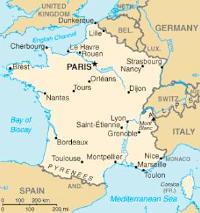PARIS -- Next week, a commission appointed by President Nicolas Sarkozy will unveil France's eagerly awaited White Book on Defense and National Security. The product of months of reviews and fierce debate among France's national security community, the Livre Blanc (as it is known) will largely determine France's strategic posture and military procurement priorities for the coming 15 years. The direct impact of the commission's findings will be felt principally within the French military. But in articulating France's strategic orientation and tactical capabilities, their indirect effect will ripple outward, most immediately within Europe and the NATO alliance, but also beyond. The commission's work must also be understood in the context of a year which saw President Sarkozy announce his willingness to rejoin the NATO integrated command structure and his desire to renegotiate France's bilateral military treaties on the African continent; the opening of a permanent French military base in the United Arab Emirates; as well as a re-articulation of France's nuclear deterrent policy. Taken as a whole, the developments reinforce the image of a nation engaged in a thorough re-examination of its national security posture. So as much as the commission's final conclusions, which have not yet been officially released even if the broad lines have filtered out, the debates that went into reaching them are in themselves revealing. Over the course of the past month, World Politics Review met with leading figures representing a wide range of France's national security and foreign policy community. Our interlocuters, all of whom were extremely generous with their time and insight, included Eric Chevallier, special advisor to Foreign Minister Bernard Kouchner; Michel Miraillet, the director of the Defense Ministry's Strategic Affairs Directorate; Sen. Didier Boulaud (PS), member of the Senate Commission on Foreign Affairs, Defense & Armed Forces, who resigned in protest from the Livre Blanc Commission; Maj. General Vincent Desportes, commander of the Force Employment Doctrine Center for the French Army; Yves Boyer, deputy director of the Fondation pour la Recherche Stratégique (FRS); Bruno Tertrais, who spoke with us in his capacity as research fellow at the FRS but who is also a member of the Livre Blanc Commission; and Jean-Pierre Maulny, deputy director of the Institut de Relations Internationales et Stratégique. We also had the privilege of interviewing former foreign minister Hubert Védrine, the full text of which will conclude the series of articles to follow.
France’s Strategic Posture: Series Introduction

